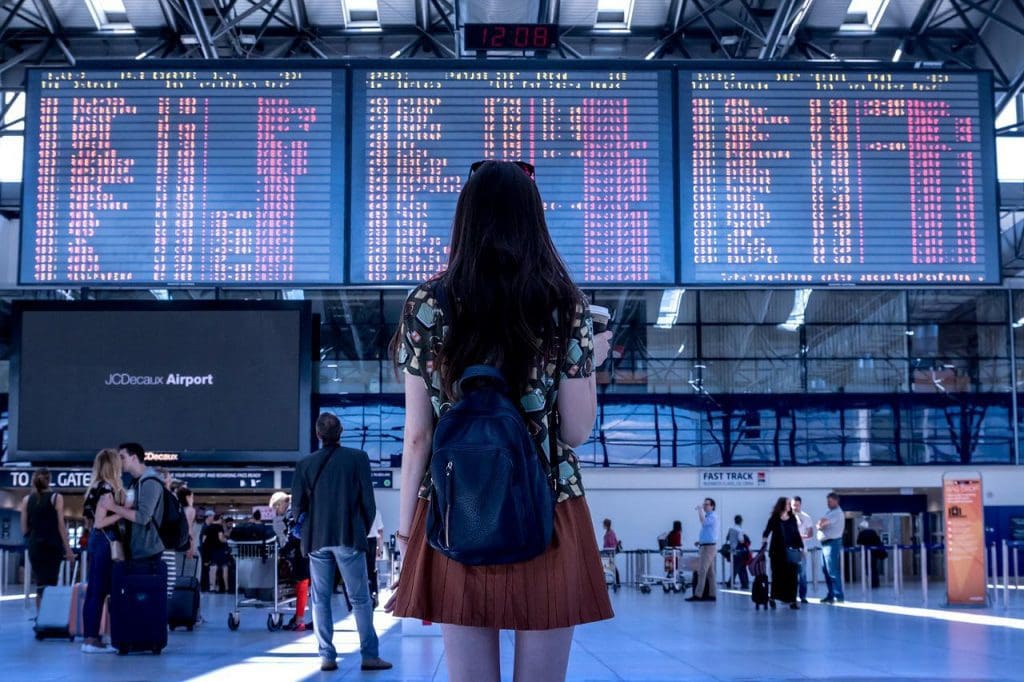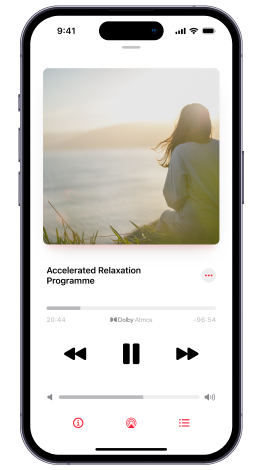With cancelled flights and other disruptions on the cards, being at an airport this summer has the potential to be more stressful than ever. But why do airports bring out our biggest fears and anxieties – and what can we do to bring our stress levels down?
A handful of airports in this world are truly wonderful places to be. Places like Singapore’s Changi airport, which is so well-regarded that people sometimes visit just for fun.
Unfortunately, the UK airports that we all use on a regular basis don’t tend to feature highly on ‘best airports’ lists. And it seems likely that they will be especially difficult places to be this summer.
Airports – especially when busy – can be problematic for people with a variety of different phobias or anxiety issues. For anybody with a fear of flying, airports are often the trigger that kickstarts their anxiety.
For people who are uncomfortable in crowds, anxiety can easily kick in when arriving at or even travelling to a busy airport.
Meanwhile, people who struggle with uncertainty can be adversely affected by delays and the other sundry problems that can come up at an airport.
Why do airports make us stressed?
It makes sense to look at what is happening in the mind that causes so much airport-related unpleasantness. And also to consider how we might undo this, or at least dial it down.
If we ignore airports for a moment, it’s safe to say that millions of people struggle with different things on a daily basis. In simple terms, their mind has become ‘programmed’ to react to things in a certain way – usually because the mind perceives this reaction to be the best response to a threat.
Ultimately, our brains are trying to protect us – but they don’t always do a good job of that. For example, for people with a fear of flying, at some point in their life a seed has been planted that sets off alarm bells when they get near to an airport or step onto a plane.
This is probably because they have read horrifying stories about air accidents or have seen one too many airport disaster films.
If they were to indulge the rational part of their brain, they might be comforted to remember that air travel is the safest way to get from A-B. Unfortunately, though, fear trumps rationality. We cover this in detail here in this blog about the anxiety hijack. In other words, you often can’t just talk yourself out of a stressful situation.
If you don’t like crowds, uncertainty, air travel or all three, then airports are very likely to set you on edge.
Trigger events cause anxiety
No matter what your phobia or fear, there will almost always be something that happened in the past that has unwittingly put your mind into a permanent ‘stand-by’ mode. It means you’re subconsciously waiting for the trigger event that will set off those internal alarm bells.
If you have a fear of flying, thinking about the flight you’re about to take or arriving at the airport are likely to be just such triggers.
Similarly, it may be that you really struggle when you feel that you are not in control. Arriving at a busy airport full of delays, chaos, lots of stressed out people and unclear information about your flight can all lead to you feeling even less in control than normal.
And so, if you are one of the many people who are affected by such things, anxiety levels start to creep up. You may experience sweating palms or shortness of breath or a general brain fog. There are a multitude of symptoms that come with anxiety.
Luckily, self-help can work wonders. Especially if you believe it will. A strange part of the self-help process is that it tends to be more effective when you fully believe in its power – and you really commit to it.
A casual, fleeting approach to self-help is not very likely to work, simply because you are not invested in it. But if you’re willing to put your faith in self-help, then give one or more of these anxiety-reducing tips a try…
Tip # 1 – Try Havening to beat anxiety
This is a relatively new therapeutic technique that was developed in America; it’s something I have seen very positive results with during hypnotherapy sessions with my clients.
As well as some complicated stuff going on in the mind that makes Havening work, there is a comforting/cocooning element to it that makes people feel reassured. It is something that you can lean on whenever you need it – although you might want to do in private as it does look a little strange!
Havening involves stroking the shoulders and upper arms in a downward motion at a rate of one stroke per second. The best way to begin is to ‘Haven out’ the emotions that you’re trying to get rid of – for example, stress. So you would say ‘stress’ in your head over and over for 30 seconds as you stroke your arms.
Once you have ‘rinsed out’ the stress, take a deep, calming breath and then ‘haven in’ the emotion that you do want to feel. With a smile on your face, repeat the stroking and say ‘happy’ for 30 seconds. Or ‘calm’, or ‘confident’.
Tip # 2 – Change your internal dialogue
You have the power to change all of that internal dialogue that you slip into in uncomfortable situations. For example, without realising it, you may be telling yourself, “I hate airports. I bet this plane is going to have an accident. There are going to be long delays at security and I will miss my plane.”
Many of us repeat negative thoughts such as this over and over again – and as a result we come to believe them. Try swapping these for a set of positive mantras instead.
Such as: “The flight will only last a few hours and then I’ll arrive at my destination, ready to do something brilliant.” Or “I’ve got a fantastic audio book and some music to listen to at the airport and that will keep me calm.” Or “I’m going to be calm and relaxed at the airport and remember to breathe and stay in the moment.”
Tip # 3 – Swap the picture
Similar to the above, swapping the picture is literally about visualising things in a different way. Instead of conjuring up images of downed aircraft or packed departure lounges, before setting out for the airport try vividly picturing yourself smiling at the airport and nursing a nice hot coffee. Or your favourite snack from Pret.
Picture yourself happily watching your favourite movie on the plane. Vividly picture the aircraft landing safely and gently at your destination – and see yourself stepping off the plane a few moments later with a broad smile on your face.
This may seem like a strange thing to do and perhaps you’re thinking that it couldn’t possibly have any effect, but visualisation like this is something that top athletes and performers use regularly to stay focused and positive. It can really help.
Tip # 4 – Get the Calm app
Mindfulness continues to baffle millions of people, but for those who commit to it it can be truly life-changing. It’s all about out helping the mind to stay in the moment and stop thinking about the past. It’s also a way to stop attaching unwanted significance to things, and to stop catastrophising about what may (but probably won’t) happen in the future.
There are lots of free mindfulness tools including the Calm app, though the paid version unlocks significantly more content. Calm has a number of short meditations that you can listen to without anybody knowing. These can help you to stay grounded and in the moment – and stop your mind from worrying and thinking terrible things.

A less stressful time at the airport
All four of the above can greatly improve your chances of having a much calmer and less stressful time at the airport. The first three also often feature in hypnotherapy sessions that I have with my clients.
So why use a hypnotherapist at all if the above techniques are available for free? The answer is that many people prefer to have the guidance of a trained clinical hypnotherapist. Especially if they feel like their anxiety is out of control or they have a lifelong phobia and want help to iron it out.
Additionally, working with a hypnotherapist means that you are fully invested in the treatment – both financially, and in terms of your time commitment. When you take the decision to book a face-to-face or online hypnotherapy session with a me, you’re signalling to your mind that you are taking whatever is bothering you very seriously. And that you want to fix it.
Naturally, there are other therapies and tools that I use during a clinical hypnotherapy session as well. I lean on my training and years of experience to combine various techniques in order to ‘supercharge’ your treatment and optimise the results.
Please just give me a call if you’d like to book a session with me.

